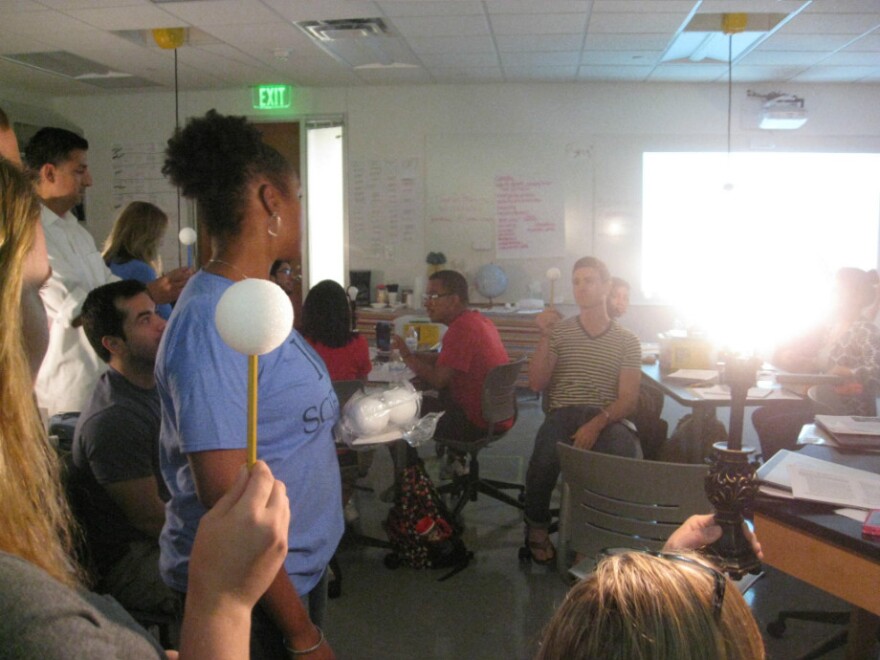Summer school’s now in session for science teachers. It’s being run by the Perot Museum of Nature and Science and Kosmos Energy. The classes target teachers who want to get their students excited about science.
Look, it’s not rocket science. We already know some ways to excite kids – even adults – about science. PBS’ "Nova" comes to mind. The weekly science program explores big questions, fascinating facts, cool pictures, and music.
But teachers can’t often bring TV or YouTube into class. Lisa Dwinal, a science teacher and now with the Perot Museum, remembers science as a school kid.
“There was a lot of ‘Open up to chapter three, read the chapter, we’ll read it out loud, and then answer questions’…”
Then, in seventh grade, Dwinal got a teacher who changed her life. She says Mrs. Jurgensen inspired her to become a science teacher, too.
“You could tell she loved science,” Dwinal says. “She was excited about it. Her eyes would light up. She would smile. Just the oohs and aahs. It’s not just the students, but when the teachers do that, you know they love it.”
In Dwinal’s summer Perot class, Jaime Rosario is a Dallas ISD fifth grade teacher learning tricks to make science class fun.

“So you have kinesthetic things you can do with your tactile learners,” Rosario explains. “You have visual, you have audio, they just have a wide gamut of resources you can use in the classrooms.”
But it’s not just about technique. Nicole Hernandez is also with the Perot Museum, and she’s teaching the teachers. She says it’s about lighting that fire under kids. It’s about passion. For Heranandez, that came from her stepdad.
“My family was not wealthy. And so when I was about 10 years-old, my mother married a man, and he has passed away. . .”
Hernandez, suddenly crying, can barely continue talking. She remembers the coolest thing that could happen to a kid.
“So he sent us to space camp," Hernandez says, through tears, "and he took us to Walt Disney World. We went to Epcot Center. He paid so I could go see the Smithsonian in Washington, D.C."
Thanks to her stepdad, Hernandez got hooked on science. Not everyone has a parent who can ignite that excitement. She says the Perot-Kosmos partnership aims to give science teachers the tools and know-how to play that role.
“My background is high school,” Hernandez says, “so most of the teachers, they have the content, but maybe instruction is where they need professional development. I think it’s almost the opposite with elementary teachers. They have the instructional strategies down, now we need to bring in the content and the instruction.”
Thanks to this summer program, these teachers will also have access to five more teacher seminars this year, science kits from the museum, mentors and other resources. It may also remind these teachers that their enthusiasm could be the switch that turns their kids on to science.


